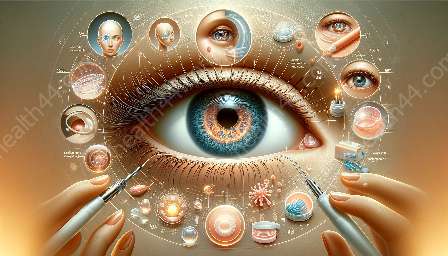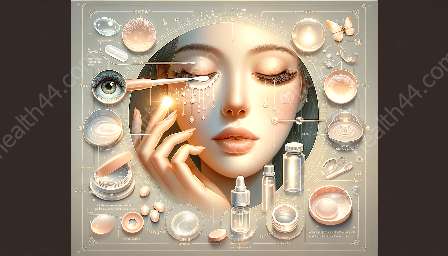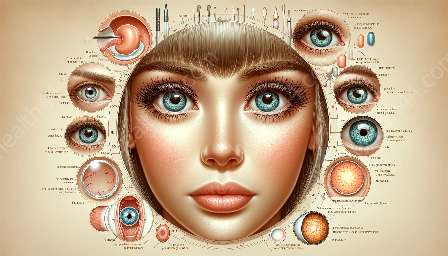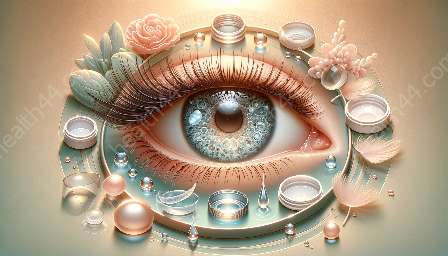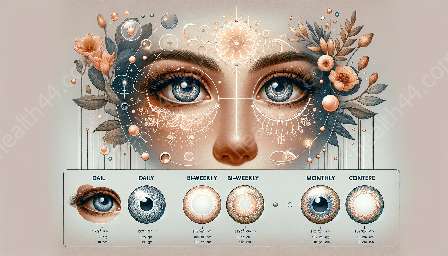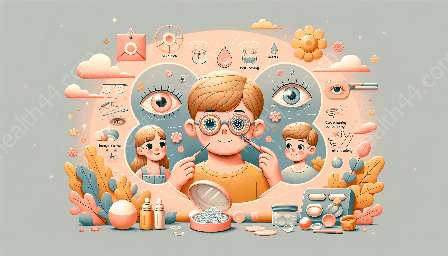As individuals age, they may experience a decline in manual dexterity and cognitive abilities, which can impact their ability to wear and care for contact lenses. This topic cluster delves into the challenges faced by older adults when it comes to contact lens wear, the potential implications on their eye health, and practical tips to improve the experience.
Contact Lens Wear in Older Adults
As people age, they may encounter various physical and cognitive changes that can affect their everyday activities, including the use of contact lenses. Reduced manual dexterity and cognitive abilities can significantly impact an individual's ability to handle and care for contact lenses effectively. This not only raises concerns about practical difficulties but also has implications for their eye health and overall well-being.
Challenges Faced by Older Adults
Older adults with reduced manual dexterity may find it challenging to insert, remove, and clean contact lenses. Fine motor skills and finger dexterity often decline with age, making these tasks more cumbersome. Additionally, cognitive changes such as memory decline or decreased attention to detail can lead to errors in contact lens care routines, potentially resulting in discomfort or eye infections.
Implications on Eye Health
The inability to properly handle and care for contact lenses due to reduced manual dexterity and cognitive abilities can have detrimental effects on the wearer's eye health. Inadequate cleaning and mishandling of lenses can increase the risk of eye infections, corneal abrasions, and other complications. Furthermore, decreased cognitive abilities may lead to forgetfulness in following the prescribed wearing schedule or replacing lenses as recommended by eye care professionals, further compromising eye health.
Practical Tips for Improvement
Despite these challenges, there are several strategies and products that can support older adults in their contact lens wear. Specialized contact lens applicators, magnifying devices, and easy-to-use cleaning solutions can assist individuals with reduced manual dexterity. Additionally, establishing a structured routine and utilizing reminder systems can help mitigate the impact of cognitive changes on contact lens care.
Contact Lenses
Contact lenses are a popular vision correction option that offer convenience and visual freedom for individuals of all ages. They come in various types, including daily disposable, monthly replacement, and extended wear lenses, catering to diverse needs and preferences. It is essential for wearers to understand the proper handling and maintenance of contact lenses to ensure optimal vision and eye health.
The Impact on Quality of Life
For older adults, maintaining independent and active lifestyles is essential for their well-being. Impaired manual dexterity and cognitive decline can hinder their ability to enjoy the benefits of contact lens wear, potentially leading to reduced social engagement and restricted activities. Addressing these challenges is crucial to help older adults preserve their quality of life and continue to benefit from the freedom and convenience offered by contact lenses.
Conclusion
The implications of reduced manual dexterity and cognitive abilities on contact lens wear in older adults encompass both practical and health-related concerns. By recognizing the challenges faced by this demographic and implementing tailored solutions, it is possible to enhance their experience with contact lenses, safeguard their eye health, and support their overall well-being.







